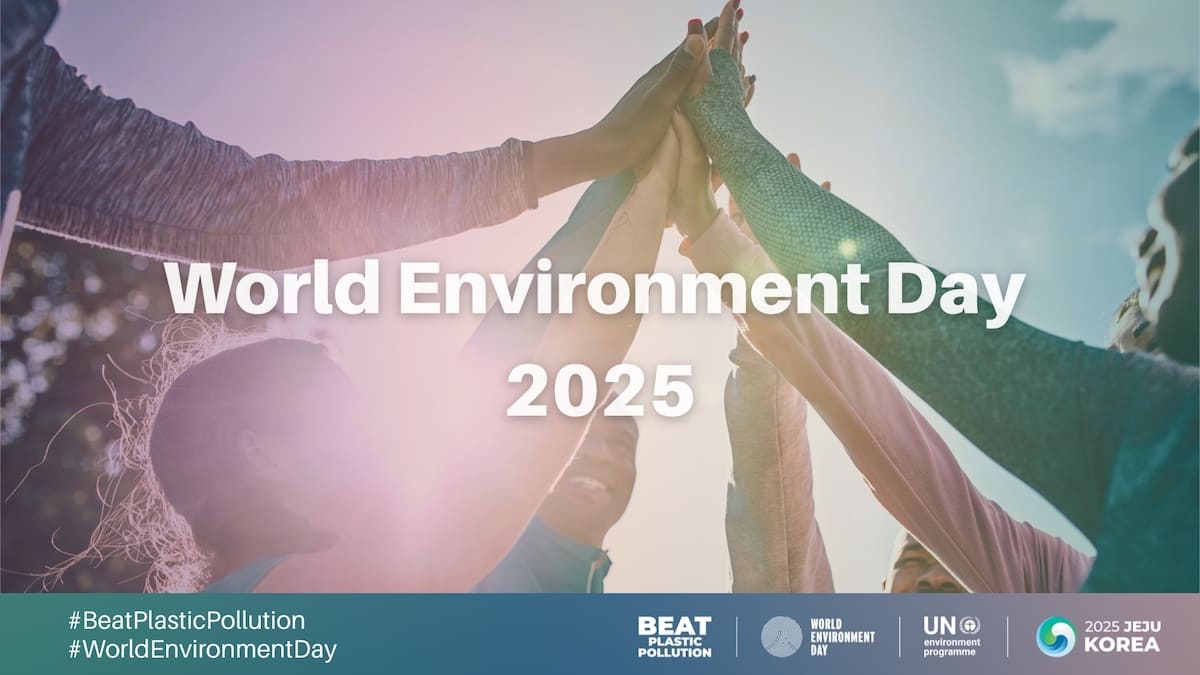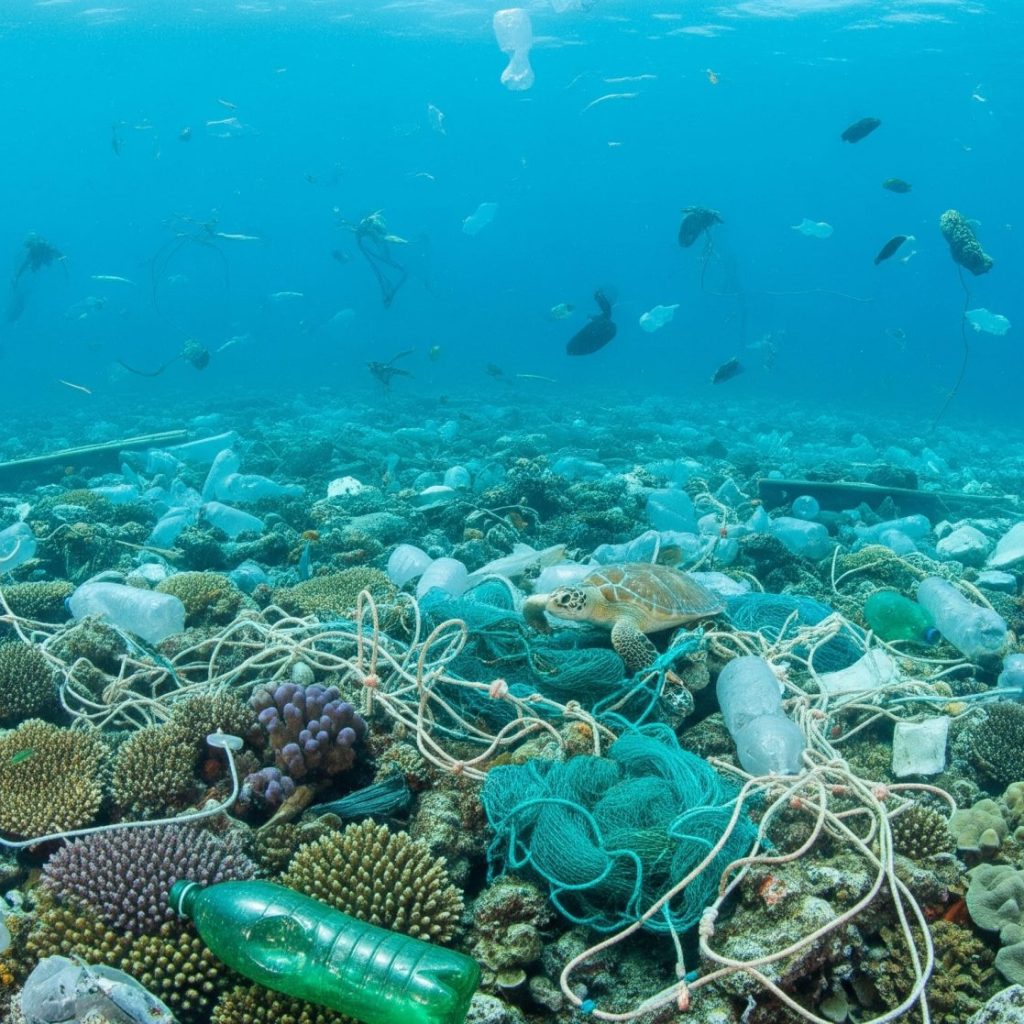
June 5 marks a global call to protect the planet
June 5 marks World Environment Day 2025, and this year’s theme is the global fight against plastic pollution. The United Nations initiative was created to encourage global action on environmental conservation and to raise public awareness.
This year’s official host is Jeju, South Korea, an island recognized as a global model for plastic recycling. From a certain angle, the Jeju Resources Circulation Center looks more like an amusement park than a waste processing plant. Conveyor belts rise and fall like a roller coaster track, but instead of thrill-seekers, they carry a constant stream of shampoo bottles, takeout containers, and other plastic waste.
The history of World Environment Day
The first World Environment Day was established in 1973 under the theme Only One Earth. Since then, each year on June 5, a different city or region hosts the event, focusing on a specific environmental challenge. The UN chose this date to commemorate the 1972 UN Conference on the Human Environment, considered a landmark moment for global environmental awareness. That same year, the UN General Assembly also created the United Nations Environment Programme (UNEP).
While global in scope, the day also calls for personal responsibility, an invitation to care a bit more about the planet and to become agents of change.
The theme of World Environment Day 2025
World Environment Day 2025 calls for collective action against plastic pollution. According to UN estimates, the equivalent of 2,000 truckloads of plastic enters oceans, seas, lakes, and rivers every day. Between 19 and 23 million tons of plastic waste ends up in aquatic ecosystems each year, polluting marine and freshwater environments.
Plastic pollution disrupts habitats and natural processes, weakens ecosystems’ ability to adapt to global warming, and directly impacts human well-being, starting with food production and extending to public health and social stability.
Countries are currently negotiating a legally binding global treaty to end plastic pollution. The treaty will address the entire plastic life cycle: production, design, and disposal. Talks are expected to resume in Switzerland in August 2025.
“Plastic pollution is choking our planet,” said UN Secretary-General António Guterres. “It breaks down into tiny particles that infiltrate every corner of the globe, from the summit of Mount Everest to the ocean floor, from the human brain to breast milk. But there’s a growing global movement demanding urgent change.”
“By 2040,” warned Inger Andersen, Executive Director of UNEP, “plastic pollution could increase by 50%. But we can come together to build alternatives that reduce plastic’s environmental footprint. These solutions can transform how we use materials and help protect public health and communities.”
Jeju, South Korea: a case study
Jeju’s residents know the impact of plastic pollution firsthand. Located in the East China Sea, roughly 100 km south of the Korean Peninsula, Jeju began facing waste management challenges as South Korea’s rapid industrial growth took off in the 1960s. By the 1980s and 1990s, plastic waste had become a critical issue. Islanders began replacing traditional bamboo boxes and clay jars with plastic containers for storing everything, especially food.
Few people have seen the toll of ocean plastic as closely as Youngmi Jang, now 71. She has been a haenyeo since age 15, one of Jeju’s traditional women divers who harvest shellfish and seaweed without oxygen tanks, diving as deep as 10 meters. In 2016, UNESCO recognized haenyeo culture as Intangible Cultural Heritage. “The ocean used to be my playground,” she recalls. “It was beautiful, filled with shellfish and sea cucumbers. Now, trash is everywhere.”
About 40 minutes from Jeju city lies a state-of-the-art waste processing center. Built between 2020 and 2023, it handles 60 tons of waste per day. While workers manually sort items, most of the work is done by machines. Mechanical separators isolate lighter plastics. Light pulses detect composition and sort materials for resale. In 2024 alone, Jeju made $2.3 million from selling recycled materials. Processing plastics locally costs one-tenth of what it would take to ship them to the mainland.
Jeju’s success stems from a strong civic mindset. The island recycles nearly 66% of household plastic, paper, and other waste, well above the global average of 19%, according to a UN report.
This year, Jeju is launching a pilot program to subsidize reusable food delivery containers. Customers who bring their own cups to cafés and restaurants will receive beverage discounts. The province is also considering installing mini dishwashers for reusable bottles in public buildings like universities and libraries.
World Environment Day 2025 initiatives
To join the global movement and celebrate the day, visitors can search the official World Environment Day 2025 event map for local activities using the hashtag #BeatPlasticPollution.

